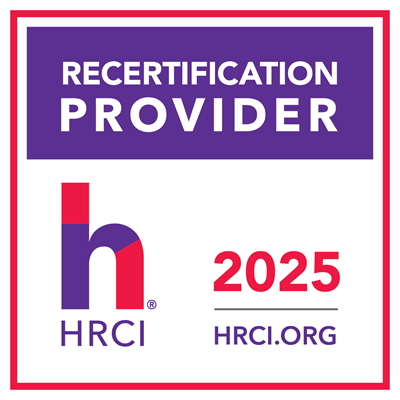

Employment Law Master Class
May 14 & 15th, 2025 | 1:00-4:00 p.m. Eastern
A to Z legal training for HR professionals
From day one of his new administration, President Trump has proposed a flurry of changes that will require employers to drastically alter their policies and procedures. This comes on the heels of an already challenging employment law landscape for HR professionals due to changes already made in the Supreme Court’s last and current terms.
Things don’t look to be slowing down, making the Employment Law Master Class more crucial than ever. We’ll update our class materials right up until the event to ensure you have the latest guidance available on the most crucial employment law topics, including immigration, wage-and-hour law, AI in employment and more.
The EEOC secured almost $700 million
for over 21,000 victims of employment discrimination — the highest monetary recovery in recent history.
The EEOC received 88,531 new charges of discrimination
an increase of more than 9%
9.2% increase
Disability discrimination charges increased 9.2%
Sourceline: EEOC FY 24 data
And with so much uncertainty, we’ll make sure you know which regulations, EEOC guidance and NLRB directives employers must follow now. HR professionals need to comply with sweeping changes at the federal level. These are bound to spark countless labor law challenges and increase the litigation risk for employers. And don’t forget, you still must administer leave, recruit to fill vacancies, discipline employees and prevent harassment.
The Employment Law Master Class is an attorney-led training session that will review the most important HR laws, explain updates and help you prepare your department to comply with ever-changing rules. You’ll even have the opportunity to get your questions answered by an employment law expert.
Even if we don’t get to all your questions during the session, you will be able to email them to the instructor following the event.
Join us over two afternoons on May 14 and 15 for the Employment Law Master Class. At the end of this advanced session for HR practitioners, you’ll be confident and ready to tackle the legal requirements and tricky issues you face.

Anniken Davenport is a noted employment law attorney and the legal analyst and senior editor of HR Employment Law Advisor and HR Specialist: Employment Law. She has authored several books, including the The FMLA Compliance Guide, Bullet-Proof Your Employee Handbook and Employer’s Practical Legal Guide. Anniken has served as a professor at Penn State University, where she taught business law and HR management, and she directed the Legal Studies Program at Wilson College. Her legal career includes representing government units in discrimination and other employment law cases and representing school districts in labor negotiations.
Direct Access to Your Instructor
We include dedicated Q&A discussion time, plus Anniken will answer questions after the presentation as well.
Master Class Agenda:
Registration Bonuses:
Bullet-Proof Your Employee Handbook
Newly revised! Ensure that your handbook is a tool that protects your organization from lawsuits, not a liability. This book will help you make sure your policies are clear, concise and legally sound.
PDFs of each session
We’ll send the presentation slide decks ahead of time so you can follow along and enhance your training.

Satisfaction Guaranteed!
If the Employment Law Master Class fails to meet your needs, we will refund 100% of your tuition, no questions asked. Your registration bonus and course materials are yours to keep.

Business Management Daily is recognized by SHRM to offer Professional Development Credits (PDC) for SHRM-CP® or SHRM-SCP® recertification activities.

This Program has been pre-approved for 5.50 HR (General) credit hours toward aPHR®, aPHRi™, PHR®, PHRca®, SPHR®, GPHR®, PHRi™ and SPHRi™ recertification through HR Certification Institute® (HRCI®).

P.O. Box 9070, McLean, VA 22102-0070 | (800) 543-2055
Copyright © 2025 Business Management Daily. All rights reserved.
